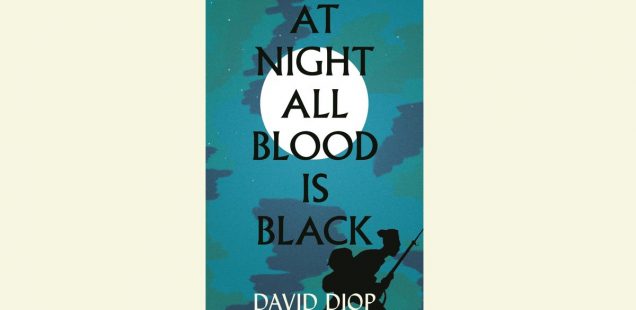
At Night All Blood is Black Review – A Novella of Brutal Beauty
This novella may be short on content but not on power. Every word counts in this raw and savage monologue that is now the worthy winner of the International Booker Prize. Having been previously the recipient of many awards this translated book solidifies itself as a classic of its time.
While much has been written about the brutality of World War I, this novella is a savagely honest and forceful reflection on the dehumanising impact of war. The protagonist learns that madness is ‘bravery’s sister’ in war and as he descends more and more into madness, his introspection is full of fear, rage, hurt and revenge.
Alfa Ndiaye is a Senegalese soldier on the French side of World War I – the African soldiers are called Chocolat by their white comrades, thus putting them into a separate category and at times, suggesting its own kind of savagery. He is fighting alongside his friend and more-than-brother, Mademba Diop. When Mademba is injured by the enemy and begs Alfa for a mercy killing Alfa cannot do it and lives to regret this. He allows his friend to die a painful and undignified death and spends his time afterwards trying to gain misguided revenge and redemption for himself.
The writing uses spiritual, sexual and grisly war imagery and is a mix of allegory and myth. The language is repetitive in a way that makes you picture the rocking back and forth of a person with a serious mental illness. The inner thoughts of Alfa are brutal and raw and make us reflect on war and how it changes those on the front line. He becomes a ‘blood thirsty savage’ and sums up war as ‘when God lags behind the music of men’. While at first hailed as a hero, later he is told that he has pushed his violence too far and that his ‘way of waging war is a little too savage’ – the irony here is that this is just after his superior has sent handcuffed men into no man’s land as sacrificial lambs.
Alfa is mad but in his madness he reaches insights about the viciousness of war and of the world and its duality. These insights will stay with readers. It is the dispassion in his descriptions of violence and rape towards the end that sums up the brutal world in which men are sent out to try and distinguish between courage and madness and between murder and war. That line is blurred. As are the lines of translation itself, of racial divides, of how Africans are viewed and of colonialism.
There is a lot to unpack in this brutal but brilliant novella.
